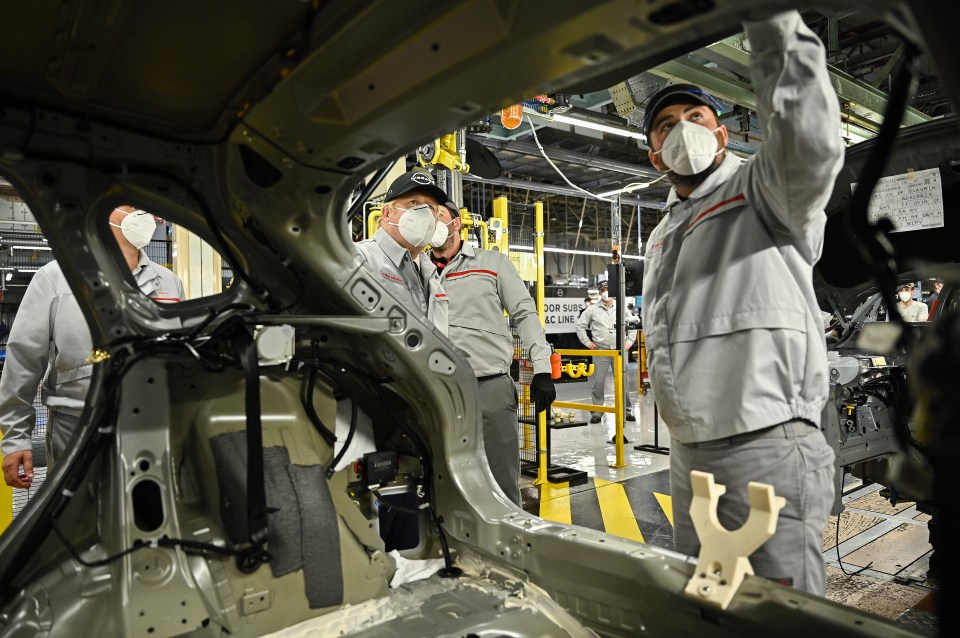BritishVolt’s collapse is disturbing but it’s not surprising

BritishVolt’s collapse is alarming news for Britain’s automobile and electric vehicle industry, but it’s not surprising after we failed to build the battery infrastructure we needed, writes former Nissan exec Andy Palmer.
A company going into administration is never easy. Beyond the headlines, there are very personal job losses and circumstances that tinge any corporate collapse with a great sense of sadness. But with BritishVolt, it will bring a great deal of regret to many of us who know and love the British auto industry and want to see it succeed into the new generation of electric vehicles.
Sad, yes? Surprised? No. I’ve been warning for many years that without a proper strategy in the UK to deliver at least five or six gigafactories on British soil, the industry will collapse. It seems that BritishVolt’s administration has signalled the start of that downfall.
From the beginning of the electric vehicle revolution, the UK always had the potential to become a global leader in the market. We have a strong automotive industry and proud heritage, with well-established companies such as Jaguar Land Rover and Mini producing popular electric models. Coupled with the UK government setting ambitious targets, with a goal to have 60 per cent of new car sales be electric by 2030, the future looked bright.
But setting targets and putting in place the investment and support to see those targets come to fruition are two very different things. There was never even the whiff of a strategy in place that would outline how those targets would be met.
In order to meet the growing demand for electric vehicles, the UK needs to build more gigafactories. Without them, the targets and grandiose speeches from politicians are worthless.
Of course, consumers will still buy electric vehicles – just not those manufactured in the UK. We are in a critical moment where the UK must reduce its dependence on foreign countries for battery production. Currently, the majority of batteries are produced in Asia, with the US and EU showing promising signs of growth. This means that the UK is heavily dependent on other countries for a vital component of EVs.
By building more gigafactories in the UK, the country can reduce this dependence and ensure a steady supply of batteries for a growing EV market.
Of course, BritishVolt’s departure doesn’t mean that other companies won’t build gigafactories on UK soil – but it signals that Britain does not have the optimum conditions for a battery manufacturer to succeed. And that’s what worries me most.
With such a strong research and development (R&D) sector, the UK should have prioritised this area of the economy. The country is home to several world-class universities and research institutions that are working on developing new EV technologies. Whether it’s Imperial College London working on developing new battery technologies that could significantly improve the range and performance of EVs, or Coventry & Universities helping to drive net-zero trade in rural, emerging markets through electric delivery trucks – we have the brainpower to succeed in this space. But it appears that message has not been received by successive occupants of Downing Street.
Sceptic will ask why we need a domestic battery manufacturing base at all? After all, we rely on imports in other sectors and we live in an increasingly globalised world. Whilst true, trade conditions specific to the UK, such as Brexit, dictate that a certain amount of materials must be made domestically before exporting to avoid prohibitive tariffs.
Not only that, but a battery industry will also create jobs and stimulate economic growth. We have had a successful automotive industry for decades, if we want to keep it, we have to adapt. It would create new career opportunities and support a sector which already enables more than 800,000 jobs.
BritishVolt’s collapse does not signal the very end of the auto industry in this country, but it does point to a deeply worrying future. If battery manufacturers do not look to the UK as an attractive place to do business, we will be lost in the wilderness as the EU, China and America dominate. We have one final chance to get it right – and soon.
